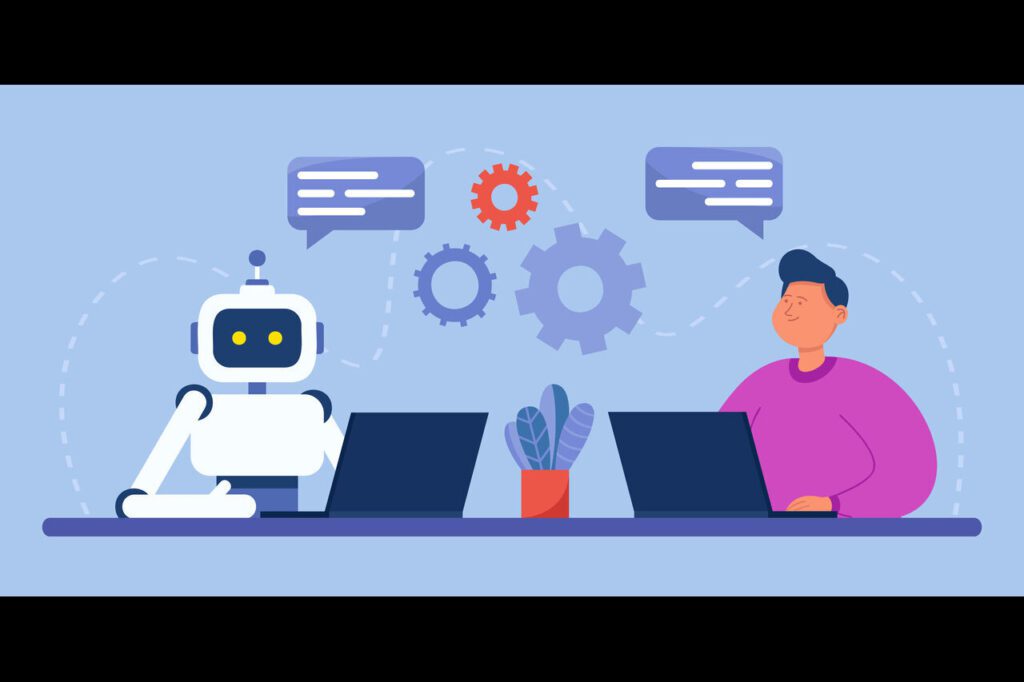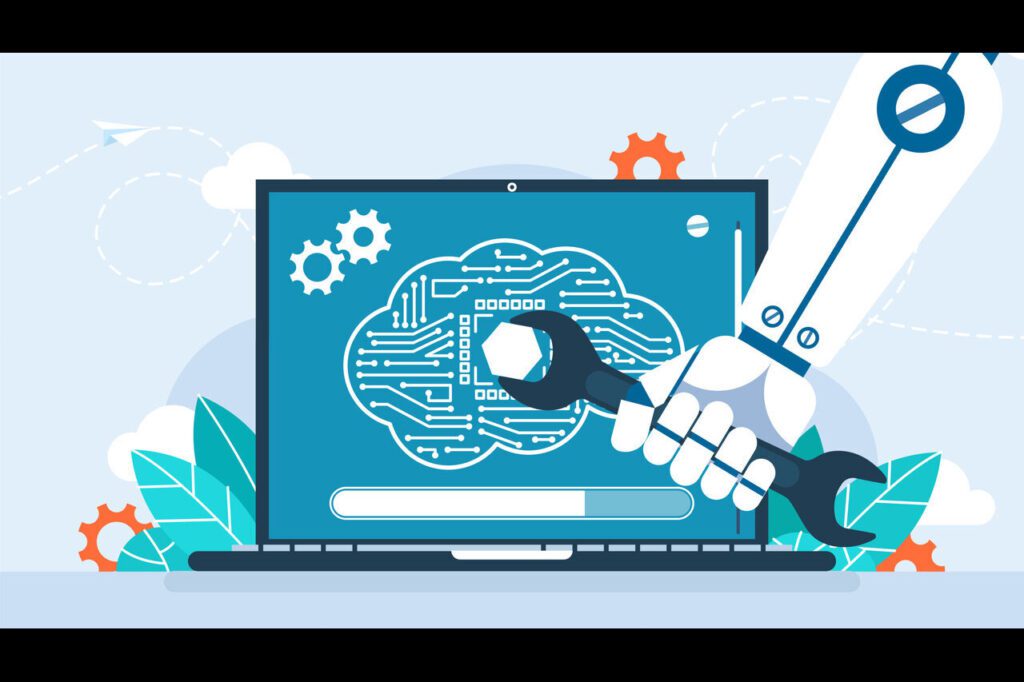AI automation is revolutionizing the way local businesses operate, offering innovative solutions to enhance efficiency, reduce costs, and improve customer experiences. For small to medium-sized enterprises (SMEs), adopting AI automation can be a game-changer. This article delves into the most frequently asked questions about AI automation and its impact on local business operations.
Table of Contents
What is AI Automation?
AI automation involves the use of artificial intelligence technologies to perform tasks that typically require human intervention. These technologies include machine learning, natural language processing, and robotics, which can automate various business processes. For local businesses, AI automation can streamline operations, improve accuracy, and free up human resources to focus on more strategic activities. For instance, AI-driven systems can automate routine data entry tasks, reducing the likelihood of errors and allowing employees to concentrate on more value-added tasks. Moreover, by leveraging machine learning algorithms, businesses can predict trends and customer behaviors, making operations more proactive rather than reactive.
The implementation of AI automation also supports scalability, allowing small businesses to grow without proportionately increasing their workforce. As the business expands, AI systems can handle increased volumes of transactions, customer interactions, and data processing tasks, ensuring consistent performance and service quality. This scalability is crucial for SMEs aiming to compete with larger enterprises. Additionally, AI can enhance decision-making processes by providing data-driven insights, enabling business owners to make informed choices based on real-time analytics.

How Can AI Automation Benefit My Local Business?
Implementing AI automation in a local business can bring numerous benefits. These include increased operational efficiency, cost savings, enhanced customer service, and better decision-making capabilities. For instance, AI-powered chatbots can handle customer inquiries 24/7, reducing the need for a large customer service team. Additionally, AI can analyze large datasets to provide insights that help in making informed business decisions. By automating routine tasks, employees can focus on more strategic and creative work, leading to increased job satisfaction and productivity.
Moreover, AI automation can lead to significant cost savings by reducing the need for manual labor and minimizing errors. For example, in retail, AI can optimize inventory management by predicting demand and automatically restocking items, thus reducing overstock and stockouts. This not only saves costs but also improves customer satisfaction by ensuring that popular products are always available. AI can also optimize energy usage in physical stores or offices, leading to lower utility bills.
Furthermore, AI enhances customer service by providing personalized experiences. AI systems can analyze customer data to understand preferences and behaviors, allowing businesses to tailor their offerings and marketing efforts. For example, personalized recommendations based on past purchases can increase sales and customer loyalty. AI can also automate follow-up emails and feedback requests, ensuring that customers feel valued and heard. These personalized interactions can significantly enhance customer satisfaction and loyalty, which are crucial for the long-term success of local businesses.
What Types of Tasks Can Be Automated with AI?
AI automation can be applied to a wide range of tasks within a local business. Common applications include customer service, inventory management, marketing, and administrative tasks. For example, AI can automate scheduling appointments, sending personalized marketing emails, managing inventory levels, and processing transactions. This allows businesses to operate more efficiently and respond to market demands quickly. In the realm of customer service, AI chatbots can handle frequently asked questions, process orders, and provide troubleshooting assistance, freeing up human agents to deal with more complex inquiries.
In addition to customer service, AI can revolutionize marketing efforts. AI tools can analyze vast amounts of data to identify customer segments and predict their behaviors, allowing for more targeted and effective marketing campaigns. For instance, AI can automate the creation and delivery of personalized email campaigns, ensuring that the right message reaches the right audience at the right time. This level of personalization can significantly improve engagement and conversion rates.
Administrative tasks such as data entry, invoicing, and payroll processing can also be automated with AI. By automating these repetitive tasks, businesses can reduce errors and improve efficiency. For example, AI-powered accounting software can automatically categorize expenses, generate financial reports, and even predict cash flow trends. This not only saves time but also provides business owners with accurate and timely financial information to make informed decisions.

How Do I Implement AI Automation in My Business?
Implementing AI automation requires careful planning and a clear understanding of your business needs. Start by identifying the tasks that can be automated and the AI technologies that can best serve those tasks. Next, choose a reliable AI service provider and develop a detailed implementation plan. It’s also essential to train your staff to work alongside AI tools and to continuously monitor and evaluate the performance of the automated systems. Begin with a pilot project to test the feasibility and effectiveness of AI automation in a specific area of your business before scaling it up.
When selecting an AI service provider, consider factors such as their expertise, track record, and the scalability of their solutions. It’s also important to ensure that their AI tools can integrate seamlessly with your existing systems. During the implementation phase, involve key stakeholders from different departments to ensure that the AI solutions meet the needs of various parts of the business. Providing comprehensive training to your employees is crucial for the successful adoption of AI. This includes not only technical training on how to use the AI tools but also education on the benefits of AI and how it can enhance their roles.
Ongoing monitoring and evaluation are essential to ensure that the AI systems are performing as expected and delivering the desired outcomes. Establish key performance indicators (KPIs) to measure the impact of AI automation on your business processes. Regularly review these KPIs and gather feedback from employees and customers to identify any issues or areas for improvement. By taking a proactive approach to monitoring and evaluation, you can continuously optimize your AI systems and ensure that they continue to deliver value to your business.
What Are the Costs Involved in AI Automation?
The costs of AI automation can vary depending on the complexity of the tasks being automated and the AI technologies used. Initial setup costs can include purchasing AI software, hardware, and training for staff. However, these costs are often offset by the long-term savings and efficiency gains achieved through automation. For local businesses, the investment in AI automation can lead to significant cost reductions and a higher return on investment. For example, AI-powered customer service solutions can reduce the need for a large support team, while AI-driven marketing tools can increase the effectiveness of campaigns and reduce advertising costs.
In addition to direct costs, businesses should also consider indirect costs such as the time required for implementation and potential disruptions to operations during the transition period. However, these short-term costs are typically outweighed by the long-term benefits. To maximize the return on investment, it’s important to carefully assess the potential benefits of AI automation for your specific business and develop a detailed cost-benefit analysis. This analysis should take into account not only the financial savings but also the potential improvements in efficiency, customer satisfaction, and employee productivity.
Many AI service providers offer flexible pricing models, such as subscription-based plans or pay-as-you-go options, which can make AI automation more affordable for small businesses. It’s also worth exploring government grants or funding programs that support the adoption of advanced technologies by SMEs. By taking advantage of these opportunities, local businesses can reduce the financial barriers to implementing AI automation and start reaping the benefits sooner.
How Can AI Automation Improve Customer Service?
AI automation can significantly enhance customer service by providing quick and accurate responses to customer inquiries, personalizing customer interactions, and offering 24/7 support. AI-powered chatbots, for example, can handle multiple customer queries simultaneously, reducing wait times and improving customer satisfaction. Additionally, AI can analyze customer data to predict their needs and preferences, allowing businesses to offer tailored services and products. For instance, AI-driven recommendation engines can suggest products based on previous purchases or browsing behavior, increasing the likelihood of repeat sales and customer loyalty.
Moreover, AI can streamline the customer service process by automating routine tasks such as order tracking, returns processing, and account management. This not only reduces the workload for human agents but also ensures that customers receive consistent and accurate information. AI can also enhance the quality of customer interactions by providing agents with real-time insights and suggestions during live chats or calls. For example, AI can analyze the sentiment of a customer’s message and recommend the best response to improve the outcome of the interaction.
Personalization is another key benefit of AI automation in customer service. By analyzing customer data, AI can identify individual preferences and behaviors, allowing businesses to tailor their communications and offers. For example, personalized email campaigns can include product recommendations, special offers, and content that is relevant to each customer. This level of personalization can significantly improve customer engagement and satisfaction, leading to increased loyalty and lifetime value.

Is AI Automation Secure for My Business?
Security is a crucial concern when implementing AI automation. It’s essential to choose AI solutions that have robust security measures in place to protect your business data. This includes encryption, access controls, and regular security audits. Additionally, businesses should ensure that their AI systems comply with relevant data protection regulations. By taking these steps, local businesses can safeguard their data and maintain customer trust. For example, AI systems should be designed to limit access to sensitive information based on user roles and responsibilities, ensuring that only authorized personnel can access critical data.
Another important aspect of AI security is the protection of customer data. With increasing concerns about data privacy, it’s essential for businesses to implement AI solutions that comply with regulations such as the General Data Protection Regulation (GDPR) and the California Consumer Privacy Act (CCPA). This includes obtaining customer consent for data collection, providing transparency about how data is used, and ensuring that data can be securely deleted upon request. By adhering to these regulations, businesses can build trust with their customers and avoid potential legal penalties.
Regular security audits and vulnerability assessments are also crucial to ensure that AI systems remain secure over time. These audits should include testing for potential security weaknesses, reviewing access controls, and updating security protocols as needed. In addition to technical measures, businesses should also provide training for employees on data security best practices and the importance of safeguarding sensitive information. By creating a culture of security awareness, businesses can reduce the risk of data breaches and protect their valuable assets.
What Challenges Might I Face with AI Automation?
While AI automation offers many benefits, businesses may face several challenges during implementation. These can include high initial costs, resistance to change from staff, and the need for ongoing maintenance and updates of AI systems. To overcome these challenges, it’s important to have a clear implementation strategy, provide adequate training for employees, and work with a reliable AI service provider who can offer support and guidance. It’s also essential to set realistic expectations and communicate the benefits of AI automation to all stakeholders to gain their buy-in and support.
One common challenge is the initial cost of implementing AI automation. This includes not only the cost of purchasing AI software and hardware but also the time and resources required for integration and training. To manage these costs, businesses can start with a pilot project to test the feasibility and effectiveness of AI in a specific area before scaling it up. By demonstrating the benefits of AI automation through a successful pilot, businesses can build a strong case for further investment.
Another challenge is resistance to change from employees who may fear that AI will replace their jobs. To address this concern, businesses should emphasize that AI is intended to augment human capabilities rather than replace them. Providing training and support to help employees adapt to new technologies can also ease the transition. For example, training programs can focus on developing skills that are complementary to AI, such as critical thinking, creativity, and emotional intelligence.
Ongoing maintenance and updates are essential to ensure that AI systems continue to perform effectively. This includes monitoring the performance of AI algorithms, updating software, and addressing any issues that arise. Partnering with a reliable AI service provider can help businesses manage these tasks and ensure that their AI systems remain up-to-date and secure. By taking a proactive approach to maintenance and support, businesses can maximize the benefits of AI automation and minimize potential disruptions.

Can AI Automation Help with Marketing Efforts?
AI automation can greatly enhance marketing efforts for local businesses. AI tools can analyze customer data to identify trends and preferences, allowing businesses to create targeted marketing campaigns. Automated email marketing, social media management, and personalized advertising are some of the ways AI can improve marketing efficiency and effectiveness. By leveraging AI, businesses can reach their target audience more effectively and drive higher engagement and sales. For example, AI can segment customers based on their behavior and preferences, enabling businesses to deliver personalized content and offers that resonate with each segment.
One of the key benefits of AI in marketing is the ability to analyze large datasets quickly and accurately. AI-powered analytics tools can process vast amounts of data from various sources, such as website traffic, social media interactions, and purchase history, to uncover valuable insights. These insights can help businesses understand their customers’ needs and preferences, identify emerging trends, and optimize their marketing strategies. For example, AI can identify the most effective channels and times to reach customers, allowing businesses to allocate their marketing budget more efficiently.
AI can also automate repetitive marketing tasks, such as content creation and distribution. For instance, AI-powered tools can generate personalized email campaigns, social media posts, and advertisements based on customer data. This not only saves time but also ensures that marketing messages are consistent and relevant. Additionally, AI can optimize marketing campaigns in real-time by analyzing performance data and making adjustments to improve results. For example, AI can adjust ad targeting and bidding strategies to maximize the return on investment.
Furthermore, AI can enhance customer engagement by providing personalized experiences across different touchpoints. For example, AI-powered chatbots can engage with customers on social media, answer their questions, and recommend products based on their preferences. Personalized product recommendations on e-commerce websites can also increase conversion rates and average order value. By leveraging AI to deliver personalized and relevant experiences, businesses can build stronger relationships with their customers and drive long-term loyalty.
How Will AI Automation Evolve in the Future?
The future of AI automation is promising, with continuous advancements in technology set to offer even more sophisticated and efficient solutions. For local businesses, staying updated with the latest AI developments and being open to adopting new technologies will be key to maintaining a competitive edge. Future AI innovations may include more advanced machine learning algorithms, improved natural language processing capabilities, and greater integration with other business systems. These advancements will enable businesses to automate more complex tasks, gain deeper insights from data, and deliver even more personalized experiences to their customers.
One of the key trends in AI automation is the increasing use of machine learning and deep learning algorithms. These advanced AI techniques enable systems to learn from data and improve their performance over time. For example, predictive analytics powered by machine learning can help businesses forecast demand, optimize inventory levels, and make more accurate business decisions. As these algorithms become more sophisticated, they will be able to handle more complex and nuanced tasks, further enhancing the capabilities of AI automation.
Another important trend is the development of more advanced natural language processing (NLP) technologies. NLP enables AI systems to understand and generate human language, making interactions with customers more natural and intuitive. For example, future AI chatbots may be able to understand context and emotions more accurately, providing more personalized and empathetic customer service. This will enhance the customer experience and increase the effectiveness of AI-powered customer service solutions.
Integration with other business systems is also a key area of development for AI automation. Future AI solutions will be more seamlessly integrated with existing business systems, such as customer relationship management (CRM) software, enterprise resource planning (ERP) systems, and marketing automation platforms. This will enable businesses to leverage AI across different functions and processes, creating a more connected and efficient operation. For example, AI can automate the flow of information between different departments, ensuring that all parts of the business have access to real-time data and insights.
As AI technologies continue to evolve, businesses will also need to address ethical considerations and ensure that their AI systems are transparent, fair, and accountable. This includes implementing measures to prevent bias in AI algorithms, ensuring data privacy and security, and providing transparency about how AI decisions are made. By adopting ethical AI practices, businesses can build trust with their customers and stakeholders and ensure that their AI solutions are used responsibly.
Conclusion
AI automation presents a powerful opportunity for small to medium-sized local businesses to transform their operations, enhance efficiency, and improve customer experiences. By understanding the benefits, implementation strategies, and potential challenges, businesses can effectively leverage AI automation to achieve their goals and stay competitive in an ever-evolving market. As AI technologies continue to advance, businesses that embrace AI automation will be well-positioned to capitalize on new opportunities and drive long-term success.


